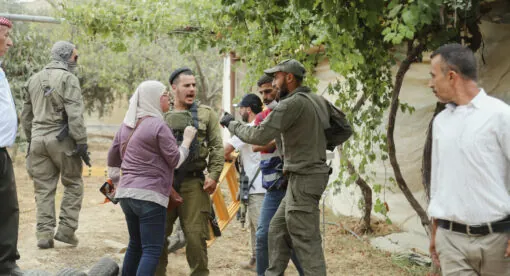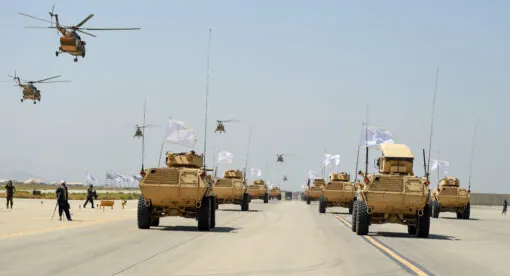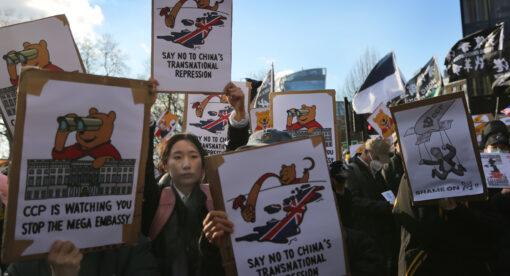Over a 24-hour period, leader of the Russian paramilitary Wagner Group Yevgeny Prigozhin urged Wagner fighters to march on Moscow, successfully captured a city in Southern Russia, and then signed an agreement to back off and retreat to Belarus. Host Carolyn Moorman, Non-Resident Fellow Jeff Hawn, and Open-Source Information Gathering Manager Aram Shabanian dive into what these events mean for Russia’s internal political dynamics and foreign policy.

Home / Analyzing Wagner’s March on Moscow
Analyzing Wagner’s March on Moscow
Related Articles

Trump’s Remarks Portend Waning U.S. Leadership on Transnational Repression
While the Nov. 18-19 White House visit by Saudi Arabian Crown Prince Mohammed bin Salman may have solidified the U.S. relationship with a

U.S.-Based Charities Are Funding Israeli Settlements: Podcast
In this episode of the Bridging the Gap podcast, host Rachel Nelson talks with Matthew Petti, an assistant editor at

Why Did the U.S. Withdrawal from Afghanistan Fail?
In this episode of the Contours Podcast, host Robert Kremzner sits down with John Nagl and Jonathan Schroden, experts in

Reports Illuminate Deficiencies in the U.S. and U.K. Responses to TNR
The U.S. and U.K. governments of late have taken an explicit interest in the topic of transnational repression (TNR), a
